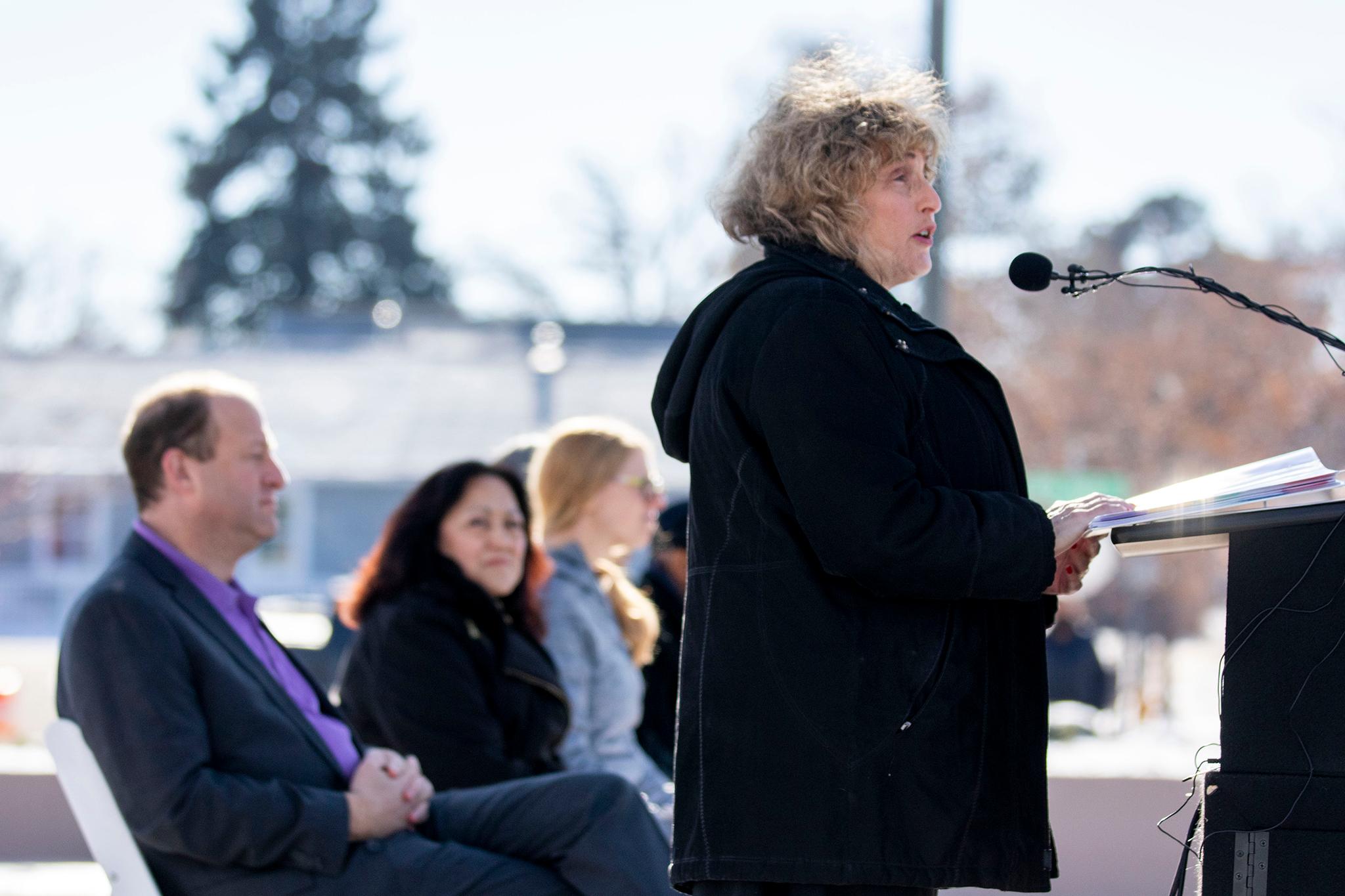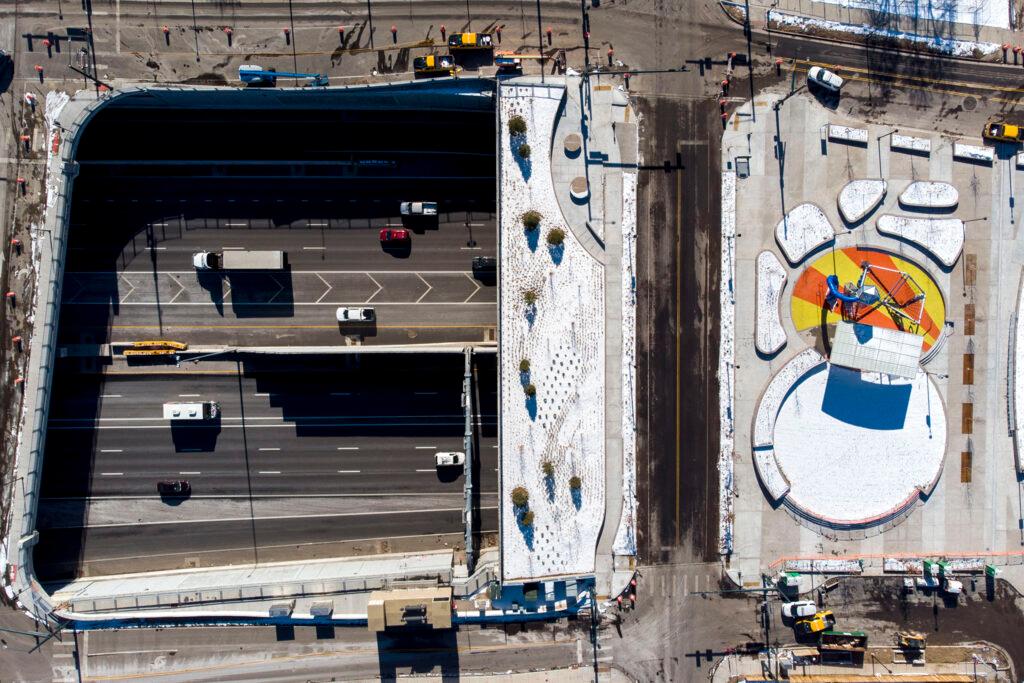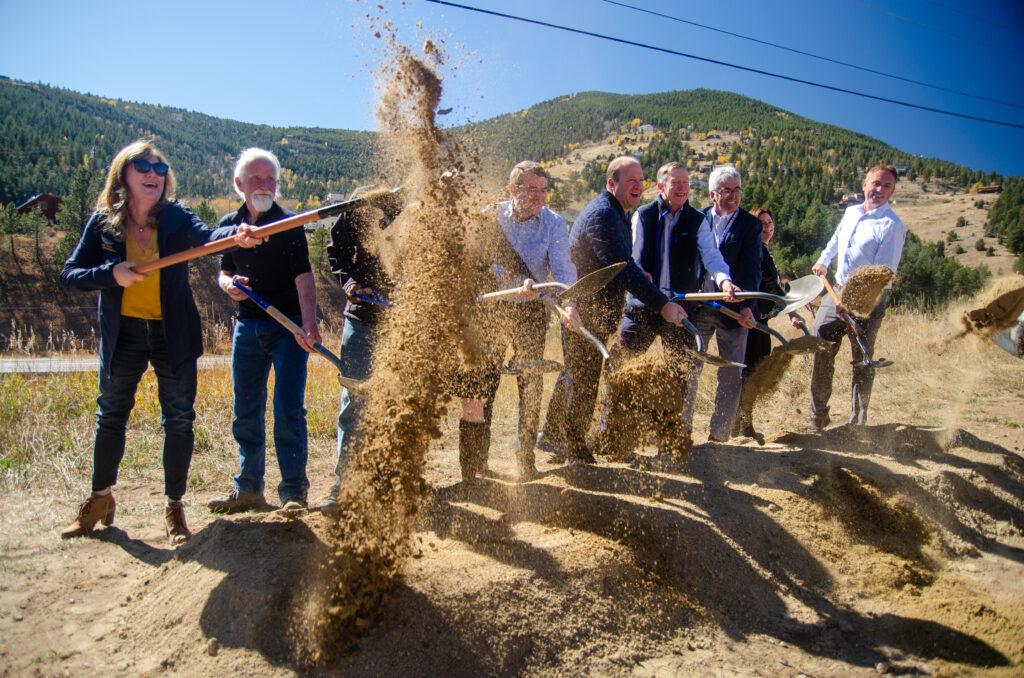
It’s a vital moment for transportation infrastructure in Colorado. After decades of funding shortfalls, both the state and federal governments have recently passed legislation that is pumping billions of new dollars into the transportation system.
The all-important question is how to spend it.
Should highways continue to be widened to allow more drivers to use them? Should vehicle lanes on busy roads be converted to bike or bus lanes to allow people to move more easily without a car? Each type of project has its own impact on climate emissions, equity, commutes and more. Put simply, what we build shapes our cities and how we live in them.
After decades of building cities and roads primarily for vehicles, Colorado has recently begun to shift more dollars toward public transit, pedestrian and bicycle infrastructure. And the federal government, under Democratic President Joe Biden, has rewarded the Centennial State for that change.
“Colorado is really a leader in a lot of these areas, both with respect to climate and with respect to equity,” Stephanie Pollack, acting administrator of the Federal Highway Administration, told CPR News. “That's probably one of the reasons they're doing well when we put out competitive grant rounds.”
Pollack traveled to Denver to celebrate the official opening of a new park over Interstate 70 in Elyria-Swansea and stopped by CPR’s studio to talk about the Central 70 project and more. Here are highlights from the interview, which have been edited for length and clarity:
Q: Tell me why the federal government thinks it’s worth coming out and celebrating that particular project.
Pollack: The Central 70 project is a great example of how we can make future-looking infrastructure investments that actually also address some mistakes that were made in the past. This is a project that's going to help reconnect communities that were disconnected by the construction of it.

Q: So that particular interstate — there were multiple lawsuits over it. The neighborhood still doesn't want it, but the federal government, the state government and the city of Denver all said, no, this is important for our greater community, our state, our country. How does the federal government decide who's right here? Is it the neighborhood who wants quiet for the first time in 50 years? Or is it the greater community?
Pollack: The federal government doesn't pick and choose projects in most cases. That is done by the state department of transportation. What we do is oversee the process, the environmental process, the planning process for those projects to make sure that the right community voices are heard, the right commitments are made, the right factors are taken into account. And then at the end of the day, a state transportation department and a regional planning agency that has to vote the money — they make the final decisions on what gets built and how.
Q: The bipartisan infrastructure legislation that passed about a year ago — can you tell me any specific projects in Colorado that will benefit because of that bill?
Pollack: The bipartisan infrastructure law represents a once-in-a-generation investment. Colorado already is seeing about $2.9 billion coming its way. And our understanding is there's about a hundred projects underway where at least some of the funding is coming from the bipartisan infrastructure law.
The law also has funds for grants. So money that doesn't just come to states, but monies you have to compete for. And Colorado is well-positioned to compete. It's already gotten the largest airport grant that we've made for Denver Airport and a substantial $100-million grant for improving Interstate 70 up near Floyd Hill.

Q: One thing that I report on a lot and that I hear about a lot are concerns that a lot of this money is going to highway projects. That larger highways will induce more people to drive on them, driving up climate emissions … Is that a concern of yours?
Pollack: The bipartisan infrastructure law contains a lot of dollars that can be used flexibly. They can be used for those kinds of projects. They can also be used for great multimodal projects, and we're seeing a lot of the money go to the right kinds of projects. We've put out new guidance for all the programs to make sure the states know where the flexibilities are to make investments in walking, biking, transit, EV charging.
There was recently a one-year report that was put out by the main industry group … and it pointed out that about half of the money is actually going to improving the state of repair and modernizing our roads. And that's twice the proportion that is going to highway expansion projects. So the decisions are the states’. But it seems like they're making some pretty good decisions about using the bipartisan infrastructure law to advance important policy priorities like safety, equity and climate readiness.
Q: What do you think of what Colorado is doing and the priorities they're setting?
Pollack: Colorado is really a leader in a lot of these areas, both with respect to climate and with respect to equity. That's probably one of the reasons they're doing well when we put out competitive grant rounds. The regulations that were adopted on greenhouse gases and planning at the end of last year, I think, are a national model. Right now, federal highways actually has a proposed national rule out for comment on having states set benchmarks, targets for reducing transportation sector greenhouse gas emissions and then monitoring their progress towards those benchmarks.
Pollack: That was very much informed by the experience in Colorado. So in a lot of cases, what I have found in this job is there are states that are very progressive, very multimodal, very focused on the same safety, equity, and climate priorities that this administration has.
Q: You're really describing a paradigm shift in … where money should go. But Colorado, despite getting headlines for dropping some high planned highway expansions, still wants to expand plenty of highways across the state.
Can you say where the federal government thinks that highways do need to grow and where policy makers should be trying to shift people out of cars and into other cleaner modes of transit?
Pollack: Those decisions about growth and the nature of growth are really left to local government, regional planning agencies and states. In the end, what we can do is make sure that the places that want to orient their growth toward having better options — not only needing to use a car but being able to take transit, walk, bike, use an electric car if they need to use a car. What we can do as the federal government is make sure that the resources are available to pay for those kinds of projects the way that we have been paying for highway projects.









